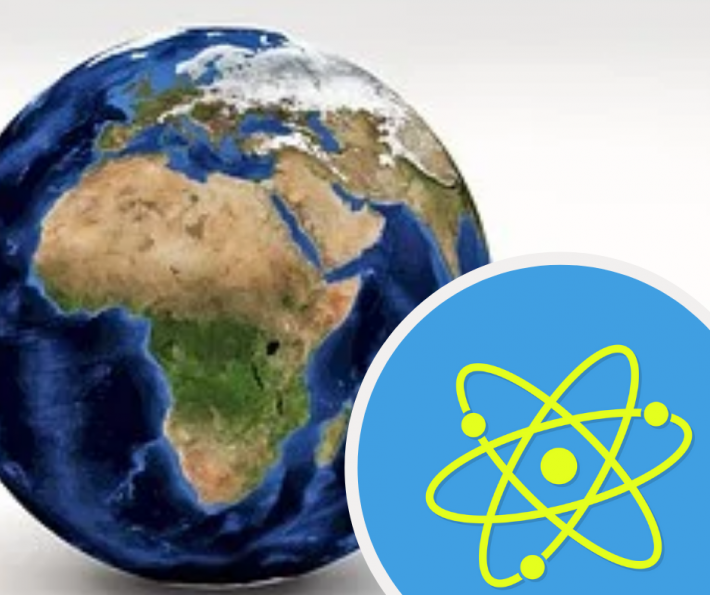The heads of UN aid organizations issued a joint statement yesterday warning of the devastation being wrought on children in Yemen by the famine conditions in the country. About 400,000 children under the age of five are in danger of dying of acute malnutrition in war-torn and impoverished Yemen, they warned, reported {Al Monitor}. They said half of those in the most vulnerable age bracket, or 2.3 million small children, are projected to suffer from severe malnutrition this year. “These numbers are yet another cry for help from Yemen where each malnourished child also means a family struggling to survive,” World Food Programm chief David Beasley said in a joint statement.
“More children will die with every day that passes without action”, said Henrietta Fore, head of the United Nations children’s agency UNICEF. “Humanitarian organizations need urgent predictable resources and unhindered access to communities on the ground to be able to save lives.”
The UN agencies also warned that about 1.2 million pregnant or breastfeeding women are also expected to suffer from extreme malnutrition in 2021. “The crisis in Yemen is a toxic mix of conflict, economic collapse and a severe shortage of funding to provide the life-saving help that’s desperately needed,” said Beasley. “But there is a solution to hunger, and that’s food and an end to the violence.”
The three crew members of the first mission to China’s space station are on their way to start a 30-day trial of the first element of the station—the core module. Their mission includes very specific objectives, including unpacking the supplies delivered by a cargo ship; activating and testing the life support systems; donning EVA suits which have already been delivered, and so forth.
This mission will be for three months. It has been more than five years since the last manned mission, and a lot of new technology has been developed over that time, which can only be tested in space. If everything is running smoothly, the following missions will last six months each, instead of three.
Space science and exploration, recent breakthroughs in controlled thermonuclear fusion are the science drivers for a growing and prosperous human race. Man is surely a galactic species, and the realization of that idea has profound implications for everything from education and healthcare, to the potential for new Beethovens and Mozarts. That issue of scientific and artistic creativity will be central to the upcoming Schiller Institute/ICLC conference.
For the Common Good of all People, not the Rules Benefiting the Few!
International Schiller Institute/ICLC online conference, June 26/ 27, 2021
The head of Russia’s State Space Corporation Roscosmos, Dmitry Rogozin, spoke yesterday at the Global Space Exploration Conference 2021 taking place in St. Petersburg from June 14-18, and he called for international cooperation to address the dangers posed by asteroids and comets that could collide with the Earth.
Rogozin is a close ally of President Putin, and his remarks were well-timed to issue a call for US-Russian cooperation right before the Biden-Putin summit. “There is no technology that would make it possible to change the trajectory and ward off the danger for our Earth,” Rogozin stated. “It is necessary to create these technologies, but not a single country will be able to do that alone. This is a common task to protect our planet… The most important task is how to protect the planet from hazardous collisions with celestial bodies that may ruin civilization.”
Rogozin’s call for cooperation to address threats coming from space, resembles Lyndon LaRouche’s long-standing policy proposal for the Strategic Defense of the Earth.
Space science and exploration, recent breakthroughs in controlled thermonuclear fusion are the science drivers for a growing and prosperous human race. Man is surely a galactic species, and the realization of that idea has profound implications for everything from education and healthcare, to the potential for new Beethovens and Mozarts. That issue of scientific and artistic creativity will be central to the upcoming Schiller Institute/ICLC conference.
For the Common Good of all People, not the Rules Benefiting the Few!
International Schiller Institute/ICLC online conference, June 26/ 27, 2021
The LaRouche International Youth Movement issued the following statement on the occasion of the second anniversary of the Feb. 12, 2019 death of Lyndon H. LaRouche.
We, youth from around the world and members of the international Schiller Institute, have posed the question as to whether we’re really doing the right thing in terms of the academic and moral education of so many of the planet’s youth. In replying, we discover the paradox that if we were doing the right thing, the grave international systemic crisis we face wouldn’t exist.
What we instill in the minds and hearts of our youth through their education, will give them the tools to decide what they will do with their lives, taking up the mission of a “commitment to society” to improve our universe. With the method Lyndon LaRouche’s ideas represent, the word “commitment” won’t frighten them. They will see in it the realization of their ideals, as they better themselves and consequently seek the improvement and benefit of their fellow man.
With this in mind, we have launched an initiative called “LaRouche in the universities. What really is power?” This initiative consists of training young students, professors and other interested parties in the method and contributions of the American physical economist Lyndon LaRouche. We must introduce in all curricula the history of those ideas which, in the course of the evolution of human civilization, have allowed us to emerge from existential crises with renewed vigor to create a renaissance at a higher level. And that’s what the ideas on statecraft and the agapic principle that LaRouche contributed during his lifetime represent. So today, when these ideas are more necessary than ever, we launch this project on the second anniversary of his passing, February 12.
This is our petition:
That we begin education and training in the method developed by Lyndon LaRouche, through courses, workshops, seminars, graduate courses, conferences, contests, experiments, science and art fairs—to take place in academies, universities, forums, courses and classes. We ask that you open your minds, have a meeting and discuss how to collaborate to activate the creative capacity and the “specific faculty of cognitive insight” in the individual; to create with this a dynamic of Socratic dialogue in response to the search for solutions to the paradoxes posed by the current crisis.
We aren’t demanding. We are offering the opportunity to give young people what belongs to them by natural law. That is, to create an inflection point in history—an option that differs from the pessimism they breathe.
It’s true. What young people decide to do with their education isn’t in our hands; but at least we will feel at peace knowing that we’ve done the right thing—having guided these youth in the direction of the Good and not toward their self-destruction.
This is true love for one’s fellow man—it is true agapē. Our petition isn’t born of being fed up with society, of anger, hate or victimization. Rather, it is born of the hope of building, through our own efforts, a dignified present for the human race and for all inhabitants of our planet. These are the ideas which Lyndon LaRouche defended in life, and we young people have assumed the responsibility of bringing them to fruition with even greater force today.
The consequences of changing the present will be a future of prosperity, but one filled with paradoxes to be resolved for our future generations—an opportunity to seek one’s happiness through being useful to others, rather than just thinking of oneself.
Former Mexican President José López Portillo said in 1998: “It is now necessary for the world to listen to the wise words of Lyndon LaRouche;” and we would add, “it is now necessary that he be studied at every center of learning in the world.”
Join Our Initiative!!
What follows are excerpts taken from Lyndon LaRouche’s February 11, 2001 document “A Philosophy for Victory: Can We Change the Universe?” In that document, LaRouche explains the method referred to above.

The most important, and most fundamental of the issues posed to us by this onrushing catastrophe, is: As a matter of principle, to what degree, in what manner, and by what means, can man gain foreknowledge of the method by which to willfully change the current direction of his society’s destiny, for the better, in specific ways? Even to overcome, thus, the worst sort of impending, seemingly inevitable catastrophe, such as the presently onrushing one?
For reasons which I have defined extensively within earlier writings, any discussion of this topic, must situate itself by efficiently implied reference to the accumulation of knowledge possessed by mankind, and, more narrowly, by any specific culture, up to the time of a current discussion. In other words, the investigation of matters pertaining to the question of method set forth at the outset of this report, must adopt its empirical basis from the history of the efficient effects of the previous development of ideas, as Plato defined the term ideas, and as Leibniz defined the Platonic idea of a monadology.
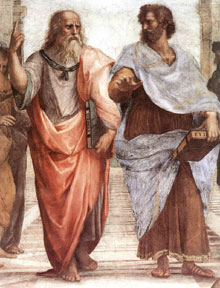

Such is the setting, in which a specific culture, at a specific time, is faced with a specific challenge to its continued existence. That challenge must be seen as that culture is situated not merely within the context of the world’s geography, but also the legacy of that society’s cultural development, accumulated from all human history, up to that time. This retrospective view defines the broad meaning of historical specificity…
When we use the term “idea,” as Plato, Kepler, or Leibniz would, we mean, either the quality of idea associated with a universal physical principle, such as Kepler’s original discovery of a principle of universal gravitation, as Kepler details this, step by step, in his The New Astronomy, or the idea of communication of such an idea to another individual person. Or, we mean the notion of an idea common to both such discoveries of a validated universal physical principle of non-living processes, or of living processes, and also the idea of the communication of ideas of that specifically cognitive quality, as ideas are defined by Plato, from one person to another.
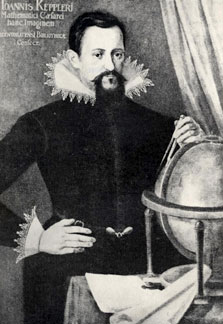
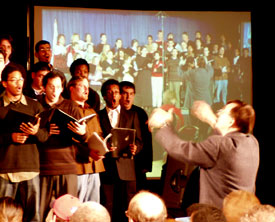
This is the same principle expressed in any performance of J.S. Bach’s St. John Passion and St. Matthew Passion, which is conducted as Bach had intended the organic participation among composer, soloists, chorus, and congregation. The intention is that all, composer, soloists, chorus, and congregation, might participate in reliving that passion within their own cognitive experiences. Mozart’s Great Mass, his later Requiem, and Beethoven’s masses,
These are not fiction, not entertainments, but the adducing of the cognitive reality of history, as distinct from a reductionist’s dumb reading of the shadows on the wall of a dimly firelit cave, or, as seen darkly in a mere sensory mirror of reality. The superior truthfulness of great Classical art, on this account, is that it accomplishes the essential function of enabling the audiences, among others, to relive the cognitive experience of the historical subject to which the art, or an appropriate form of religious service, refers…
These latter are communicated to other persons, that in the form of specifically cognitive qualities of knowledge… The validation is defined, as to be measured in terms of society’s increase of its power to exist, in and over the universe, in physical terms. Typically, this validation is to be measured per capita and per square kilometer of a normalized cross-sectional area of the Earth’s surface.
In that modern case, we can say that we know the subject author’s intent, because he obliges us, in that way, through that specific faculty of cognitive insight, to replicate the discovery of the intent of the experimentally verifiable idea in our own cognitive processes. This principle governs the way in which communication of ideas, as Plato defines ideas, occurs among living persons; it is also the way in which ideas are communicated, as ideas, from the past to the present, and to the future.
In opposition to that single step of perception, through which we learn to recognize objects in the form of sense-perceptions (e.g., the empiricist’s brutish notion of “sense certainty”), the individual act of knowing an idea requires three steps.
First: there must be the recognition of a true paradox of an ontological form.
Second: there must be an act of hypothetical discovery of some universally efficient principle, a discovery which solves the paradox.
Third: there must be an experimental test of the discovery. In other words, the test must show that the hypothetical principle is either universal, or not. If not, it is not a principle.
Since the first and third steps are both demonstrated experimentally, a second person who repeats those steps recognizes the successful nature of the thought which engendered the hypothetical discovery in the mind of the original discoverer, as recreated in his own. It is in that way, that the imperceptible is known, because the existence of that idea is efficient in controlling the shadows on the wall of Plato’s Cave. This sharing of the act of discovery of an experimentally validated principle, defines an idea of the Platonic type. Ideas of principle generated and validated in this way, thus represent communicable, and also efficient ideas for practice, even though the idea itself is not visible to the mere senses.
Thus, the subject of history, properly apprehended, is the history of ideas, as that is to be defined in the terms which I have just summarized. Thus, the only valid idea of history, is the history of ideas.
In other words, the minds of discoverers from the past are able to communicate with our minds, even if that discoverer were long deceased, through the three-step method outlined above. So, we, too, are empowered to communicate to the minds of persons who will be conceived and born long after we are dead. This relationship, defined in terms of ideas, among past, present, and future, is the equivalence of the idea of history to the history of ideas. It is not through learning rooted in sense-certainty, but only through the cognitive communication of ideas of a Platonic quality, that we are in efficient relationship to humanity as a whole, to our predecessors, our contemporaries, and our posterity alike.
This points to the indispensable role of a Classical-humanist mode of universal primary and secondary education for all members of our society. The primary goal and function of education, must be to enable the young, in particular, to relive the important cognitive experiences of past generations, especially the great discoveries and the great crises of earlier cultures and peoples. It is in the seeking of cognitive truth, in such Classical-humanist modes of education of the young in ideas, that education provides a foundation for the moral development of the character of the young person, and, hence, also the adult.
The superior moral character of the individual enjoying the benefits of a Classical-humanist education, in contrast to today’s more popular practices, expresses itself not only in the development of persons who are usually more moral, more sane than in other parts of the population, but endowed with superior qualities of intellectual achievement in whatever profession takes them up. Thus, the idea of an historically so-defined generality of cognitive development, points to an induced state of mind described as the expression of a principle of higher hypothesis, expressed, typically, as the individual’s power to generate entire families of discoveries.
It is in the ability to share that cognitive discovery of universal principle with others, in a task-oriented way, that real knowledge of the physical universe becomes a subject of conscious intention. It is in the distinguishing of one such idea, from others, of the same cognitive origin, that we are able to distinguish one idea from another one, as a form of existence of ideas, as situated within a social process.
This social aspect of the process of accumulating valid ideas, cognitively, over successive generations, defines what is properly regarded as Classical principles of artistic composition and performance. The validatable principles of Classical artistic composition, also provide the basis for the apprehension of real history and the arts of statecraft.
The functional distinction of the sovereign form of modern nation-state republic, is that it ends the subjugation of the majority of the population to the status of virtual human cattle. It is the shaping of economic and related policies according to that intention, which imposes upon government the responsibilities for: a.) protecting the national economic development, as measured in per-capita and per square-kilometer terms; b.) the promotion of the development of the basic economic infrastructure of the national territory as a whole; and, c.) the promotion of scientific progress and use of the technologies so derived, to promote the advancement of the productive powers of labor of all of the households of which the population is composed.
It is the florescence of Classical education and practice in science and art, which nourishes what becomes both the productive potential of the population, and its inclination to cooperate in bringing related improvements in the material and cultural conditions of life into general practice. The human individual is naturally creative; that distinguishes him, or her, from the beasts. That is the quality of that individual, which, if evoked and encouraged, is the source of upward tracks of revolutionary improvements in the condition of mankind. That, which Plato and the Apostle Paul would identify as the principle of agapē, is the power of mankind to change the universe.

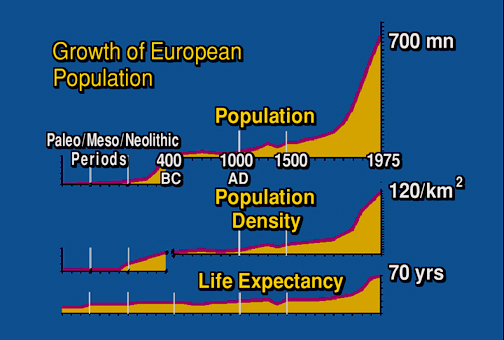
To Top
Under that headline, Paul Kagame, the President of Rwanda, and former Chairman of the African Union, wrote an op ed in the Feb. 9 Guardian newspaper, pressing the need for vaccinating Africa and developing nations, as well as the entirety of the world’s population, against COVID-19.
Kagame stated, “The current situation with regard to the access and distribution of Covid-19 vaccines vividly illustrates the decades-old contradictions of the world order. Rich and powerful nations have rushed to lock up supply of multiple vaccine candidates…. This leaves African and other developing countries either far behind in the vaccine queue, or not in it at all….The pressures on political leaders to vaccinate all their citizens before sharing supplies with others is understandable. But forcing smaller or poorer countries to wait until everyone in the north has been catered for is shortsighted.
“Delaying access to vaccines for citizens of developing countries is ultimately many times more costly.” He warned, “The pandemic will rage on, crippling the global economy. New mutations may continue to emerge at a more rapid pace. The world risks reversing decades of human development gains…. We need global value chains to be fully operational again and to include everyone.
“The Covax facility, led by the World Health Organization, was supposed to ensure doses for 20% of Africa’s people—right from the start and at the same time as richer countries. However, nearly two months after the first vaccines have been administered, it is still not clear when African nations will be able to start immunizing people… One pharmaceutical firm is reportedly planning to charge $37 per dose for ‘small orders’ [in Africa]. Recently, one African country reported being asked to pay more than double the price that the European Union had negotiated for the same product.[P]rice gouging… should not be tolerated for vaccines during a pandemic.”
Kagame asserted, “Vaccine candidates from China and Russia are also coming online and may provide an alternative for some developing countries. However, the reality is that most countries will only be able to procure vaccines that have been approved by the World Health Organization. The WHO should speed up emergency use approvals…. Africa is not sitting back and waiting for charity…. Ensuring equitable access to vaccines globally during a pandemic is not only a moral issue, but an economic imperative to protect the wellbeing of people everywhere. But when will Africa get the protection it needs? If all lives are equal, why isn’t access to vaccines?”
The following are the closing remarks of an 18-minute presentation given in 2017 by Sarah al-Amiri, today the chair of the UAE’s Space Agency, on “A Mars Mission of HOPE.” The UAE Space Agency just succeeded in placing an orbiter around Mars.
“… And it’s called Hope for a reason above and beyond the science that it is contributing. Today our region, the Middle East, is filled with turmoil. It is a region that is going through a few of its darkest hours. And what we are doing at the Hope Emirates Mars mission is providing a message. The Middle East is made up of over 50% youth. This project Hope is being run by a team that is under 35, a team that is made up of 34% women. The average age is 27. An entire nation is putting its hope on a team of youth, and presenting a message to the region.
“This mission is also called Hope, because we are contributing to the global understanding of a planet’s data. We are going above and beyond the turmoil that is now defining our region, and becoming positive contributors to science. Science to me is the most international form of collaboration. It is limitless. It is borderless. And it’s run by passions of individuals for the benefit of human understanding.
“Today, I’d like you all to do something with me. I want everyone to lift up their finger and cover a region of the sky. Look up at your finger. The region of your fingertip that is blocking the sky. The Hubble Space Telescope was pointed at a region that small, and it came up with this image. This image, the dots of light that you see—they’re not stars. They’re galaxies. There are hundreds of billions of stars in each one of those dots in that small region of sky that we look at. Each hundreds of billions of galaxies contains billions of stars. Each star, imagine how many Goldilocks zones [where water can exist on a planet] exist around them. How many planets could possibly exist around those? And how many possibilities of life that could possibly exist in this small portion of the sky? And today, I’d like you all to imagine, what is the positive contribution that you’re doing right here—on this unremarkable planet, in this unremarkable solar system, in this unremarkable galaxy, that justifies how infinite the possibilities are in this small image, and how positive and infinite your contribution is on this infinitesimal planet.”
Watch the full presentation here.
Iraq is seeking to build eight nuclear power plants by 2030, to eliminate its endemically bad electricity footprint, a product of destruction by the Children of Satan — most recently of George Bush’s 2003 Iraq War destruction, but going as far back as the 1981 bombing of the (almost complete) Osirak nuclear reactor by Israel. The oil-rich country, OPEC’s second-largest producer, is seeking to go nuclear partly under pressure from global green de-carbonizers, who are trying to raze all oil production from the planet.
According to {Bloomberg News}, who interviewed Kamal Hussain Latif, chairman of the Iraqi Radioactive Sources Regulatory Authority, “Iraq is seeking to build eight reactors capable of producing about 11 gigawatts, [and seeking] funding from prospective partners for the $40 billion plan and pay back the costs over 20 years.” Iraq has been in contact with both Russian and South Korean officials about a deal, they say.
Detailing the sorry state of electricity in Iraq, {Bloomberg} notes that Iraq currently has 18.4 GW capacity, which includes 1.2 GW imported from Iran. They estimate “normal” demand to be 28 GW — exceeding 30 GW in the “torrid” summer months. By 2030, Iraq’s demand is expected to rise to 42 GW, so the 11GW nuclear that they are seeking is right in step with demand.
The bright future with nuclear fission and fusion power will be discussed at the upcoming Schiller Institute conference.
For the Common Good of all People, not the Rules Benefiting the Few!
International Schiller Institute/ICLC online conference, June 26/ 27, 2021
The first 400,000 doses of the Astra-Zeneca vaccine produced by Argentina and packaged by Mexico were delivered by the Mexican Air Force over the weekend to Bolivia, Paraguay and Belize: 150,000 each for the first two; 100,000 for the latter, much smaller country. Another 811,000 doses, now ready for injection, were shipped back on commercial airlines to Argentina, for its use. Mexican Foreign Ministry officials report some 500,000 vaccines should be shipped to El Salvador, Honduras and Guatemala “shortly,” and others after that.
Accompanying the vaccines to La Paz, Mexican Deputy Foreign Minister for Multilateral Affairs and Human Rights declared in a joint press statement with Bolivian Foreign Minister Rogelio Mayta, that “we are one people, one community,” and we are most happy that we are able to help. Mayta agreed that “we are a single brotherhood.” He thanked Mexico, assuring Delgado that when Mexico needs help,Bolivia will be there for Mexicans, too.
Mexico’s Deputy Foreign Secretary for Latin America and the Caribbean, Maximilian Reyes Zúñiga, reported in a June 13 {El Economista} oped he headlined “Latin American Solidarity; A Diplomacy of Results,” that Mexico will be sharing the Chinese Cansino vaccine which it is preparing to produce and its own “Patria” vaccine, now in Phase II trials, with the rest of the region. He then delivered a pointed message to those like the Biden administration and other G-7 nations who have been ignored the needs of other nations:
“We are not just fulfilling a commitment made. This also entails our vision of solidarity with Latin America and the Caribbean, a diplomacy of results which places the common good before the egotistical interests which often dominate international relations. By helping others, we help ourselves. Mexico trusts in the power of leading by example, and that our actions will benefit not only the people who receive the vaccines, but that they will be a powerful image so that other countries do the same and also act in solidarity.”
The need for a world health system will be discussed at the upcoming Schiller Institute conference.
For the Common Good of all People, not the Rules Benefiting the Few!
International Schiller Institute/ICLC online conference, June 26/ 27, 2021
The website of the United Arab Emirates’s Space Agency answers the question, “Why Are We Exploring Mars?” succinctly:
“The red planet has captured human imagination for centuries. Now, we are at a junction where we know a great deal about the planet, and we have the vision and technology to explore further. Mars is an obvious target for exploration for many reasons. From our pursuit to find extraterrestrial life to someday expand human civilization to other planets, Mars serves as a long-term and collaborative project for the entire human race.”
In a fascinating interview with Space.com on Feb. 8, the day before orbital insertion, UAE Space Agency chair and Minister for Advanced Sciences Sarah al-Amiri described how Hope was designed for its mission as “the very first holistic weather satellite of Mars,” mapping the dynamics of Mars’s weather system throughout the entire day, in every region of Mars, over the course of an entire Martian year, through the combination of its three key instruments, shifting its orbit (from closer in to further out), and monitoring Mars’s lower and upper atmosphere, and the interactions between them.
“Our objectives from the get-go,” she emphasized, “are to ensure that Hope’s science is complementary to other missions and [therefore] usable to various science groups, and also new in nature so that it can continue the vast exploration efforts by different nations about Mars.”
Hope is a product of national determination and international cooperation which exemplifies how other developing countries and regions can also leapfrog into being space-faring nations. The UAE is a young nation—founded only 50 years ago—but its founder, Sheikh Zayed bin Sultan Al-Nahyan, recognized that “money is meaningless if not mobilized for the good of man,” the country’s oil wealth “valueless without national human resources qualified for and capable of building up the country” through science and industry.
It was that understanding that led far-sighted leaders of the UAE to invite physical economist Lyndon LaRouche to deliver the keynote address to a two-day regional symposium on “The Role of Oil and Gas in World Politics,” at the UAE’s Zayed Centre in June 2002, and to develop both nuclear power and space programs.
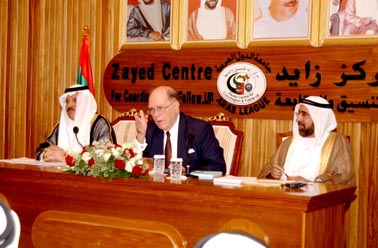
Space Agency chair al-Amiri argues that the purpose of UAE’s space program is that of “stimulating a lot of change within the U.A.E.’s economy that today more than ever should have a solid foundation in science. The best way to do that, from what we have been experimenting with as a nation, has been an exploration mission to space.”
To develop its Earth-orbit satellite program in the 2000’s, the UAE turned to South Korea to jointly design and build its first two satellites, then launched from Kazakhstan. Its Space Agency was founded in 2014, and the goal of sending a probe to Mars by 2021, the 50th anniversary of the nation’s founding, adopted quickly thereafter. By 2018, the UAE space team was able to design and build a satellite itself. To meet the tougher technical challenges of building a spacecraft for another planet, the UAE Space Agency partnered with three U.S. universities: the University of Colorado’s Laboratory for Atmospheric and Space Physics in Boulder, Arizona State University, and the Space Sciences Lab at the University of California, Berkeley campus. Hope was then launched to Mars on a Japanese rocket from the Tanegashima Space Center!
A veteran of NASA Mars missions, now based at Northern Arizona University who worked on the design of one of Hope’s instruments, Christopher Edwards, told the Wall Street Journal that the Hope mission “is like nothing I’ve ever experienced in the spacecraft program so far. There’s a huge training aspect to it and a huge collaborative aspect that is like nothing else.”
The fact that with 51.6 and 61% respectively, the Swiss population defeated plans backed by special legislation for a CO2 tax and for a total ban of pesticides in referenda yesterday, implies, as Germany’s leading news weekly {Der Spiegel} notes, that for the time being, the Swiss government’s ambitions to make its country the first in the world that bans pesticides, have been crushed. It remains a totally open question how Switzerland will now meet its promises signed at the 2015 Paris Climate Accords, the weekly says.
Germany’s state-run Deutsche Welle tries to still push the illusion that things might be corrected sooner or later in Switzerland, quoting Swiss Environment Minister Simonetta Sommaruga as claiming that the referenda were “not a vote against climate protection,” that “the debates of the past weeks have shown that many people want to strengthen climate protection—just not with this legislation.” How new legislation would come about, however, as other media note, is yet rather uncertain, because government and parliament have worked on the defeated laws for several years.
Freakouts in Germany seem to be moderate still, which may change once the full impact of the Sunday referenda has been digested. There is so far more of a freakout on the anti-terrorism law which the Swiss backed in a parallel referendum: Radical pro-climate actions like occupation or blockades of bank building, road blockades and the like which have repeatedly occurred in the past can now be termed “threat to public security” and punished much more harshly. And: police can now pre-emptively detain people suspected of planning a disruption or terrorist act even under “climate-protection” pretexts.
The science of climate change is not settled, and much of what is presented is not based on science at all. Leading scientists with the integrity and courage to buck dangerous “popular” dogma will discuss so-called manmade climate change, and the most-advanced science including the galactic science of astronomical-scale oscillations during the upcoming Schiller Institute conference. The suicidal trend in some European countries to stick with anti-nuclear attitudes will also be discussed.
For the Common Good of all People, not the Rules Benefiting the Few!
International Schiller Institute/ICLC online conference, June 26/ 27, 2021














